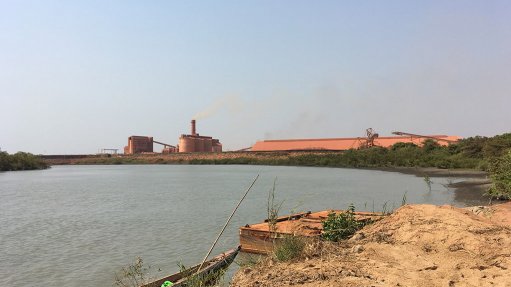
POTENTIAL PERFORMANCE The West African mining sector’s vast potential could be realised through successful proactive project development
The cheerful mood among operators at the 2019 Investing in African Mining Indaba, coupled with some proactive and innovative governments competing for attention, suggests that the West African mining sector’s vast potential may increasingly be realised through the successful development of new mining projects, says specialist investment and development communications consultancy africapractice senior consultant Adrian Fielding.
He further notes that many analysts predict strong iron-ore prices and a rise in gold production, while cobalt prices are expected to fluctuate based on the demand from China.
“Although this has not yet occurred, the China-US trade spat has the potential to impact cobalt prices significantly, through a decrease in US demand for Chinese products.”
Moreover, based on the experiences of the 2014 commodities crash, international commodity price fluctuations continue to expose economies as insufficiently diversified.
This susceptibility not only exposes governments and populations to direct risks but also major international and domestic investors to the burden of having to carry high expectations.
“Expectation management – through responsible investor and government communications and, importantly, informed local media trained in covering the extractive industries – is critical to avoid misunderstandings or even popularly inspired unrest, which is often rooted simply in overly ambitious targets,” says Fielding.
Further, he describes the infrastructure deficit as “a chicken-and-egg” dilemma. A lack of transport and power infrastructure in most areas in the West African region often precludes foreign investment in certain types of projects.
Interest from financiers in such large-scale projects is scarce because of the level of under-investment and the lack of a successful track record in many francophone West African countries.
Consequently, Fielding highlights the need for strong institutions, regulatory frameworks and informed local citizens.
“All three factors are required to gain and maintain investor interest, ensure firm and fair regulations and laws that benefit all parties, and prevent misunderstandings that all too frequently strain relationships and halt progress.”
Technology and Education Development
The evident uptick in exploration activity has resulted in mining companies seeking to broaden the developmental impact of their projects, sometimes with pressure from West African governments.
Fielding notes that africapractice has engaged in conversations on how to develop more innovative multi-user infrastructure systems that can unlock investment potential in other sectors – notably agriculture – while further enabling the development of mining assets.
“Any initiative that supports the local government’s call to create jobs, improve mobility and drive development is likely to draw significant political backing. It also acts as a form of mitigation against potential political interference or future blockage on projects,” he says.
The demand for education and skills development across the wider West African extractive sector is also a concern addressed in most development agreements.
Limitations on foreigners in terms of employment, skills transfer requirements and the establishment of specialised engineering institutes reflect the high demand for such education, he explains.
“This is driven by local West African populations and their governments. We are increasingly seeing proactive proposals by mining operators to establish institutions or at least provide training courses, with a view to reducing the reliance on foreign workers,” he says.
Mining Legislation in West Africa
africapractice has made recent consulting trips to countries such as Liberia, Guinea, Senegal, Côte d’Ivoire, Ghana and Burkina Faso, thereby underlining the extent of its footprint and institutional experience in the region.
africapractice sees huge potential for business growth, despite the complex and high-risk environment in West Africa.
Commenting on the plans of many governments in that region to improve their mining charters, Fielding highlights that many contractual issues, for example, related to development freezes and the tapering off of government revenue in such an instance, are rooted in time-bound and inflexible mining charters.
“Only a handful of governments are realising this and are implementing sliding scales, which reflect mineral prices when they are high and also guarantee a minimum of government revenue, regardless of production levels.
“Each country is unique, therefore, every commercial, political and social context requires its own attention,” he avers, warning that, “the wholesale replication of charters from other markets or the over-reliance on operators in drafting them is not advisable – whether for government or investors”.
Fielding further explains that the question of illegal mining is closely tied to how to regulate legitimate artisanal mining. “In the interest of public safety and development, governments must implement strict rules and oversee mining in authorised areas through public agency.”
Companies are often left to deal with the consequences of theft – of minerals and other on-site equipment – linked to the actions of artisanal miners in concession areas.
Dedicated concessional areas need to be provided both to limit the risks of artisanal miners interfering with industrial production and to avoid the dangers to personal health posed by illegal mining, he concludes.